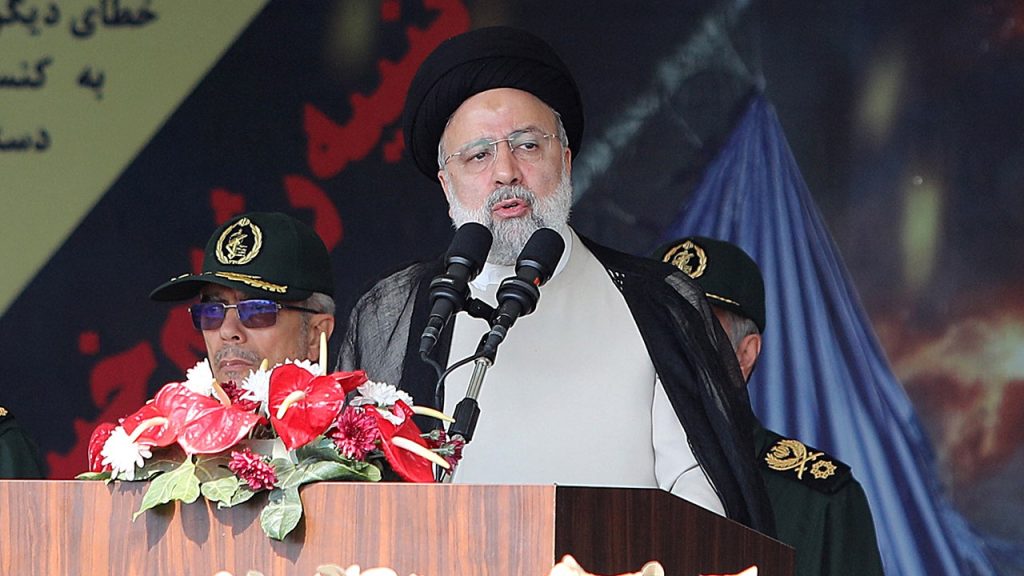Iran’s president, Ebrahim Raisi, made a strong statement at an annual army parade warning Israel of a “massive and harsh” response should they proceed with even the “tiniest invasion.” This comes in the wake of Iran’s missile and drone attack on Israel over the weekend, which was in response to an apparent strike on Iran’s embassy compound in Syria on April 1. The attack killed 12 people, including two Iranian generals, and Iran blames Israel for the incident. Raisi stated that the attack on Saturday was limited, and if provoked further, nothing would remain of the Zionist regime.
The White House has announced new sanctions on Iran following the attack against Israel, promising that the pressure will continue. Raisi’s remarks were made during a military parade that was relocated to a barracks north of Tehran for unknown reasons, with the event not being broadcasted live on state TV as usual. Israel, with the help of the U.S., the United Kingdom, Jordan, and other nations, successfully intercepted nearly every missile and drone launched by Iran on Saturday, boasting a 99% success rate with systems such as Iron Dome and David’s Sling. Israel has vowed to respond to the attack, although details on how and when have not been disclosed.
After the attack, Israel’s military council met to decide on future action, while allies have called for all sides to avoid further escalation. Iran and Israel have a history of conflict, with the recent months seeing increased tensions as Iran supports Hamas. The attack on Saturday marked the first direct Iranian military strike on Israel, with both sides now on edge as the situation unfolds. The shadow war between the two countries has been ongoing for decades, reaching a critical point with the recent events.
The threat of complete destruction of Israel by Iran has raised concerns globally, as both countries remain locked in a tense standoff with the potential for further violence. The situation has drawn the attention of world leaders, with the U.S. and other nations closely monitoring developments and preparing for potential repercussions. The unpredictability of the conflict has created a sense of uncertainty in the region, with the need for diplomatic efforts to prevent a full-scale war. The events highlight the fragility of the situation and the importance of de-escalation measures to avoid a catastrophic outcome.


